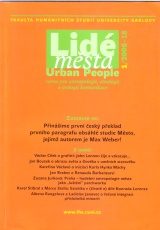Umění a smrtelní
Heidegger, Kleea a mosty
DOI:
https://doi.org/10.14712/12128112.3841Abstrakt
In 1993, Günter Seubold published his irritating essay titled Notes to Klee from Heidegger’s Estate, in which he published/not-published Heidegger’s comments on works of Paul Klee. However, they are inspiring and relevant as they relate to our discussion topic because they provide additional motives that appear in Heidegger’s Bremen Cycle, as well as in our interpretive intention. In the introduction to his article, Seubold compiles responses and creation of legends about Heidegger’s alleged lecture on Klee given to Freiburg’s architects in 1956. On this topic, Seubold jovially states: “And finally we can open the curtain: there is no such lecture in the estate; and there is no ‛extensive elaboration’ either. What is in the estate, compared with our highly inflated expectations - are quite flimsy and brief notes - in total 17 slips of paper that do not even remotely resemble some lecture or at least an elaboration for a lecture”. However, he comments on the occasion of full publication of these estate slips: “The best and most resolute way to cut off any creation of a legend, has always been to put all the facts on the table, i.e., in this case: to publish these notes”. Nothing against that, provided it is not in direct contradiction with the express directive of their author. Because Martin Heidegger personally decided that these slips containing notes - and not only about Klee - may not be published during the period when copyright is in effect. And even after such period, Heidegger did not consider their publication to be adequate. To study them makes sense for experts, only. In principal, there is only one possibility left - call it what you like - the approach executed here, namely auto-graphical description and superficial outline of Heidegger’s interpretation framework.
Stahování
Publikováno
Jak citovat
Číslo
Sekce
Licence

Tato práce je licencována pod Mezinárodní licencí Creative Commons Attribution-NonCommercial-NoDerivatives 4.0.


